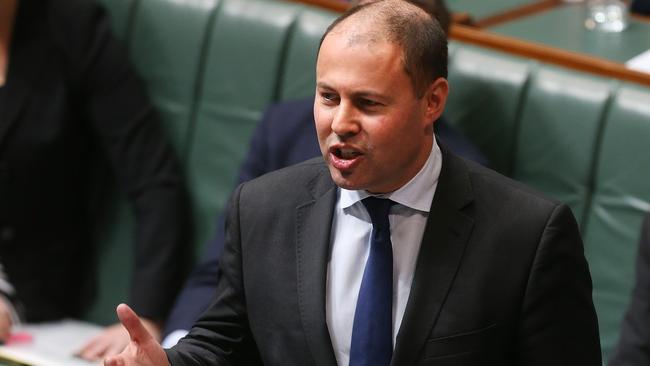Competition the key to NEG-plus
Cabinet ministers are promoting a new ‘NEG-plus’ plan to broaden the appeal of Malcolm Turnbull’s signature energy policy.

Cabinet ministers are promoting a new “NEG-plus” plan to broaden the appeal of Malcolm Turnbull’s signature energy policy among wavering government backbenchers who fear an electoral rout over power prices.
Amid hostility to the national energy guarantee in the Coalition partyroom and signs the Labor states may scuttle the policy, key ministers are raising expectations of additional support to lower energy costs.
Resources Minister Matthew Canavan told The Australian that action on energy prices would involve “an expedited response on a range of fronts” that went beyond the NEG.
Senator Canavan, a supporter of new clean-coal power plants, said a central measure would be the government’s response to a competition watchdog report on the electricity sector, which recommended the government underwrite new dispatchable power generation.
“We are doing NEG-plus. That’s the NEG plus the ACCC response, plus continuing action on gas markets,” Senator Canavan told The Australian.
Energy Minister Josh Frydenberg confirmed the NEG-plus plan would focus on the government’s response to the Australian Competition & Consumer Commission’s report on restoring electricity affordability.
The Prime Minister had previously indicated the government would look favourably at the report’s key recommendation, calling for the government to enter into low-fixed-price offtake agreements with new “firm” generation projects, to improve their prospects of securing finance.
Mr Frydenberg said the government was committed to delivering more dispatchable power to help drive down prices for large energy users.
“The Prime Minister and I are very positive about the ACCC report which provides a pathway to lower power prices,” Mr Frydenberg told The Australian.
“(ACCC chairman) Rod Sims identified the need to provide more competition in the energy system and in doing so recommended the government provide support for dispatchable new generation that supplies large commercial and industrial users.
“This is a very good recommendation which can help lower power bills.”
The push for add-ons to the NEG could alarm Labor governments in Victoria, Queensland and the ACT ahead of a crucial meeting of the nation’s energy ministers next Friday.
ACT Climate Change Minister Shane Rattenbury attacked the NEG yesterday as a “Frankenstein’s monster of a policy”, indicating the territory would oppose the plan.
However, the Turnbull government maintains the ACT — the smallest player in the nation’s energy market — is in no position to sink the NEG on its own.
Mr Frydenberg piled pressure on the Victorian government last night, urging it to ignore the Greens and GetUp!, which were campaigning hard to stop the deal against the backdrop of the November state election.
“It’s up to the Victorian Labor government to decide whether they will listen to the experts about the need for the NEG or cave into the Greens,” he said.
“This is a test of leadership for the Victorian government, who have been consulted by the Energy Security Board every step of the way.”
The NEG-plus strategy follows renewed tensions on the Coalition backbench after the release of new modelling this week showing the nation’s reliance on renewable energy will more than double by 2030 under the NEG as coal-fired plants power down.
One Nationals MP told The Australian yesterday: “I think the bottom line is it’s got to be NEG-plus or it won’t get up”.
Another Nationals MP, George Christensen, said the response to the ACCC’s report would help secure partyroom endorsement for the NEG.
“There’s been much discussion about adding recommendations out of the ACCC report on power pricing, especially the incentive scheme for new baseload investment, to the NEG, so we end up with a new NEG-plus, which will have strong support from many on the backbench,” he said.
Liberal MP Craig Kelly, the chairman of the Coalition’s backbench energy committee, said the ACCC recommendations “should be part of the NEG process”, and urged the government to model their impact on power prices.
Amid threats by Coalition backbenchers to cross the floor to oppose the NEG, House of Representatives crossbenchers also warned they could vote against the policy.
Tasmanian independent MP Andrew Wilkie said the NEG’s 26 per cent carbon emissions cut was not ambitious enough — a strong indication he would reject the plan when it was presented to the parliament.
“A target of 26 per cent is ridiculously low,” he said. “We’re already on track to achieve that.”
Bob Katter, the maverick North Queensland MP who holds the seat of Kennedy, said the electricity sector should face carbon emissions cuts.
Greens MP Adam Bandt said he was “strongly opposed” to the policy, however Centre Alliance MP Rebekha Sharkie was expected to vote for the plan.



